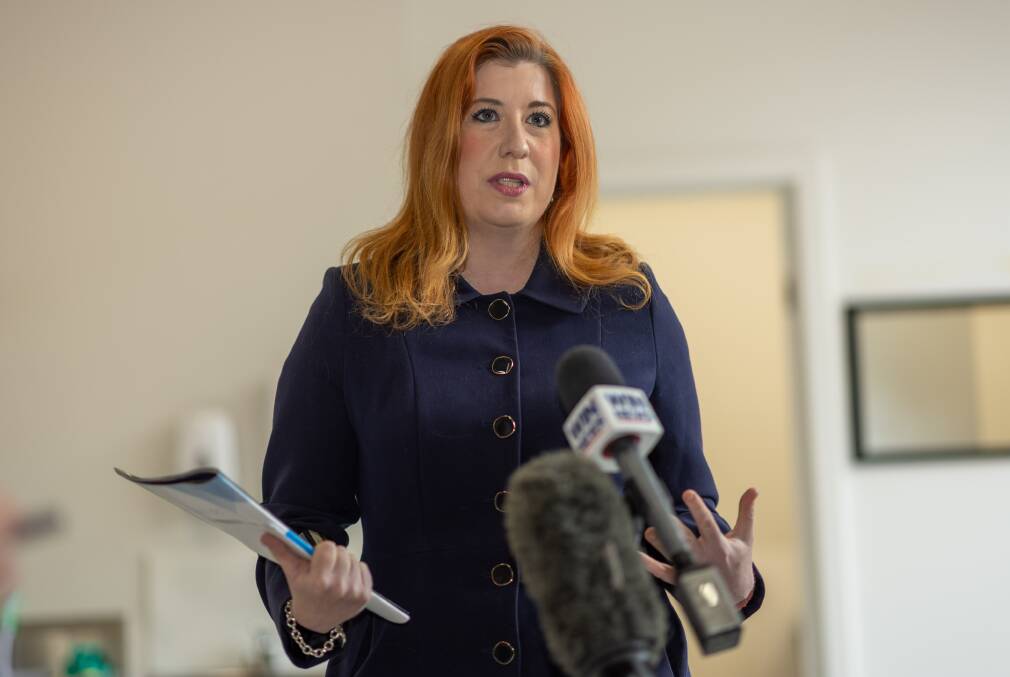Voluntary assisted dying could be available to Canberrans by late-2025, with ACT Human Rights Minister Tara Cheyne to introduce legislation on Tuesday.
The territory government is hopeful the Voluntary Assisted Dying Bill will pass the Legislative Assembly in the first half of next year and, from then, it would take another 18 months for the scheme to come into effect.
This would mean the scheme would start possibly more than three years after the territory was given back its right to legislate on the matter following a 25-year ban imposed by the Federal Parliament. This ban was overturned nearly a year ago.
Ms Cheyne, who had long fought for the ban to be overturned, said Tuesday would be a momentous day for the Canberra community.
"It is something that we have been wanting to pursue in the ACT for some time and we were banned for so long," she said.
"It feels momentous. It's historic and I think it's a proud day for Canberra and to show those naysayers that we have developed a very considered, evidence-based bill and we are a mature government with a mature parliament that is ready to debate these issues."

Under the ACT's legislation, a person will be able to access voluntary assisted dying if they have an illness that is advanced, progressive, and expected to cause death. A person must be "suffering intolerably" and have decision-making capacity.
The person must also have been a resident of the ACT for at least 12 months. The government had previously said the territory was considering dropping this requirement as all Australian states have legislated on voluntary assisted dying but Ms Cheyne said the ACT had different eligibility requirements.
"It is about ensuring that our health services have capacity to provide the right support for every individual seeking access to voluntary assisted dying, and to reduce the risk of voluntary assisted dying tourism from other jurisdictions that might have stricter eligibility requirements than the ACT," she said.
But the bill said this would be reviewed in three years. This review will also include whether the scheme could open up to people aged under-18 and if voluntary assisted dying could be included in advanced care plans.
"That is really on the basis that we heard such significant support from the community regarding those two issues," Ms Cheyne said.
"We owe it to our community who have suggested that these are really important issues for them."
The ACT had considered making voluntary assisted dying available to teenagers in the initial bill but decided against this as it would be too complex for what would be an extremely low uptake.
The territory's scheme will not require an expected time frame for a death. In all other states it ranges from six to 12 months but Ms Cheyne said this was arbitrary and it would be inherently uncertain.
The bill's explanatory statement said those who contributed to the ACT's consultation on voluntary assisted dying said a six-month time frame could mean an individual would "continue to suffer until they are close to death" and they could also lose decision-making capacity in that time.
Health practitioners who are willing to administer voluntary assisted dying will be required to undertake training but the territory's legislation allows for conscientious objections from health professionals.
However, if a health professional is against voluntary assisted dying they must let a patient know as soon as possible so they are able to seek advice elsewhere.
Care facilities which have a conscientious objection are also not allowed to hinder access to voluntary assisted dying and could face penalties, including a fine of up to $81,000 in the most extreme circumstance.
The ACT government will also establish a voluntary assisted dying pharmacy service to help with the scheme.
A select committee is likely to be established to inquire into the bill. The proposed committee would have five members. Legislative Assembly committees normally only have three members.
The committee will be required to hand down its report by February.
Voluntary assisted dying will be a conscience vote for Labor and Liberal members of the Assembly. The Greens have voluntary assisted dying in its party platform.
All Labor members have previously indicated support for voluntary assisted dying. It's unclear where all Liberal members sit on the matter.
Opposition Leader Elizabeth Lee and members for Brindabella Nicole Lawder and Mark Parton have previously indicated support for voluntary assisted dying. Leanne Castley was previously against it but said last year she was open to considering the matter, as was Jeremy Hanson but he said he would vote against voluntary assisted dying if the government was considering opening it to children or dementia patients.







